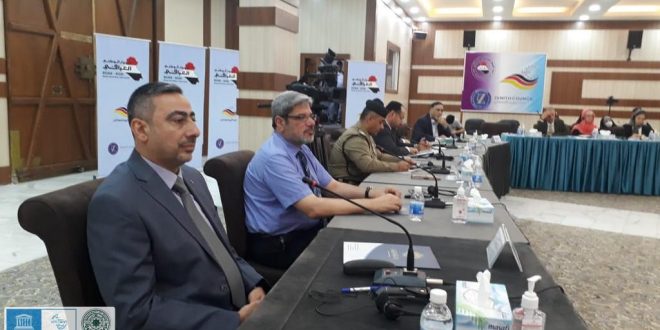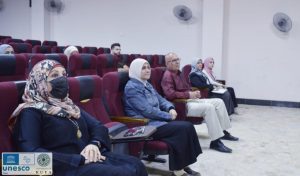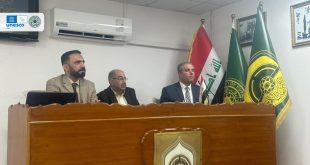the UNESCO Chair held a workshop in the central hall of the College in which Dr. Alaa Shatnan, the Director of the UNESCO Chair for Dialogue lectured on violence and counter-violence in literature, particularly in the post-colonial novel. The lecture began with a digest about Violence in the twentieth century and its reflection in French literature, particularly in the French novel, highlight the violence resulting from major events of the twentieth century, such as the two world wars, the bombing of Hiroshima, the massacres resulting from regional and civil wars, colonial wars and the role of literature in describing and documenting such violence. The lecture addressed the theme “Committed Literature” and the role of the philosopher Jean-Paul Sartre and Albert Camus in combating violence, particularly political violence. The lecture then addressed colonial literature as a reflection of colonial ideology. The colonial narrative was defined, its types, and how it adopted colonial violence. and The concept of post-colonial theory has been defined as a critical, intellectual, literary, and cognitive stream that seeks to re-read, analyze and dismantle colonial discourse. The lecture concluded with an analysis of the concepts of violence and counter-violence in the colonial and post-colonial narrative. The lecturer explained that the “justified counter-violence” in the post-colonial novel was the result of “colonial justified violence” in the colonial novel, with narrative examples being given. The lecture concluded with the debate in intellectual and political circles in the 1960s about violence and counter-violence, particularly in Jean-Paul Sartre and Frantz Fanon.
Translated into English by shaima adnan.

 UNESCO CHAIR For Inter-Religious Dialogue Studies in The Islamic World
UNESCO CHAIR For Inter-Religious Dialogue Studies in The Islamic World

